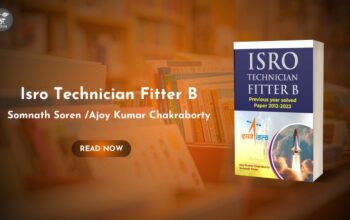Dr. Shadab Ahmed, MDS is an Oral and Maxillofacial Surgeon by professional specialisation. He serves as the Ranking & Accreditation Officer to Vinayaka Mission’s Sankarachariyar Dental College, Salem, Tamil Nadu. An extra-academic scholar of Persian, Turkish, Urdu, Sanskrit, Pali, Prakrit and Castilian literature, Dr. Ahmed has translated, paraphrased, transliterated, composed, edited and published numerous books on inter-personal & belletrist poetry. His book reviews and verses appear in major intercontinental poetry and literature journals. Here are the excerpts of our conversation with the author.
His books on poetry are:
- A Quatrain of Moods
- Bebakhshid
- Distilled Musings
- La Siesta
- Mashuq-E-Jaan
- Befarmaid
- Randy O’ Dandy

The Literature Times: Apart from writing, what else do you like to do?
Dr. Shadab Ahmed – When I am not writing or working, I often find nirvana and contentment in solo long walks into the countryside, with nothing but the titillating thrill of music acoustically stimulating my brain. Then you reach a Temple and the thumping beat of the chords & strains is permeated and perfused with the chimes and chants of the bells and rustic vocalizations. Can you think of any better way of aristocratic sensory orgasm?
The Literature Times: What are the challenges you faced while writing poetry books and how did you overcome them?
Dr. Shadab Ahmed – The major challenge I faced when writing was the general discouragement and apathy from all near and dear corners. A “person” wants you to succeed/fail, to accomplish your goals in life. Replace the person with “people”, and you invoke a tribal lunacy and a societal force de majeure which collectively prevents you to conclude your goals. Criticism came when there was no critical base for it. Disapproval came when you never even asked for approval. The “people” judged you without any base of judgement. Reflecting back, those days were very cliché and chimerical. Many times, I wanted to stop, the society wanted me to stop, their invisible zomboid arms pulling me back into the orthodox and traditionalist folds of the universe. A verse I read once somewhere was instrumental in overcoming the constricted and confined dimension in my life. To paraphrase the great Welsh poet and author, Dylan Thomas – “Do not go gentle into that good night, old age should burn and rave at close of the day, Rage rage against the dying of the light”.
The Literature Times: How do you conduct your research for your books, and what sources do you generally draw upon?
Dr. Shadab Ahmed – Any book takes a fair amount of research and intensive study, especially if you are dealing with historical manuscripts. The first problem encountered is the availability of manuscript itself, which is often neglected in this age of digitalisation. As such, it is a painstaking work to assemble raw data. I spend a fair amount of my salary on procurement of Books and Journals, which are gloriously locked behind innumerable subscriptions. Then it takes months to study them, understand them (their political, historical, social and cultural con-text), translate them, transliterate and versify them.
The sources I draw upon are my own research and translations, then valuable help of friends, scholars and acquaintances from School of Oriental and African Studies (SOAS) Archives – University of London, Department of Persian – Delhi University, The Centre of Persian & Central Asian Studies – Jawaharlal Nehru University, Iranian and Persianate Studies – University of Gottingen, Department of Urdu – Aligarh Muslim University, Department of Urdu – Panjab University, and Association for the Study of Persianate Societies.
The Literature Times: You are a scholar of various forms of literature. How can your learnings from Literature be seen in your work?
Dr. Shadab Ahmed – I am often surprised by the profound richness of Literature in all major continents, be it from any historical era and century, even when fine writing and reading skills were not fully developed. Humans have throughout the centuries evolved and conceptualised observations, extrapolating them in scriptures, bards and lyrics. Another thing that surprised me was the distinct styles of Poetry followed over different kingdoms and empires trans-continentally – from the way the poems & verses are rhymed, aligned, meticulously concised, often sending sub-toned and cryptographic gist to future generations. It is like the authors of the verses had foresight and fore-ordainment, and did knew that their future generations are going to read their creation and analyse them critically. Equally astounding is how punctiliously and thoroughly the various translators of these verses and poems have put their souls and lives in the translations, selflessly to promote cultural and historical unification & integration.
The Literature Times: What do you consider your greatest strength as a writer?
Dr. Shadab Ahmed – Being an author/writer comes with a certain level of challenge. The challenge to write more and expressively, to stick to your dedicated cognitive deadlines. This stimulates a certain level of self-discipline in your personality. When you improve the quality of your life, your overall quality improves as well. You make an impact around your environment. When people who don’t know me on a personal level come to know that am an author of several published books, they are genuinely surprised and acknowledge the fact with a sudden warm smile. In that tiny fraction of time, I see their own dreams and desires flashing in their eyes, resolving to be completed. Without a word exchanged, the message is conveyed. That is the beauty of the human emotions.
Also Read: How to Publish a Book in India – A Complete Guide



